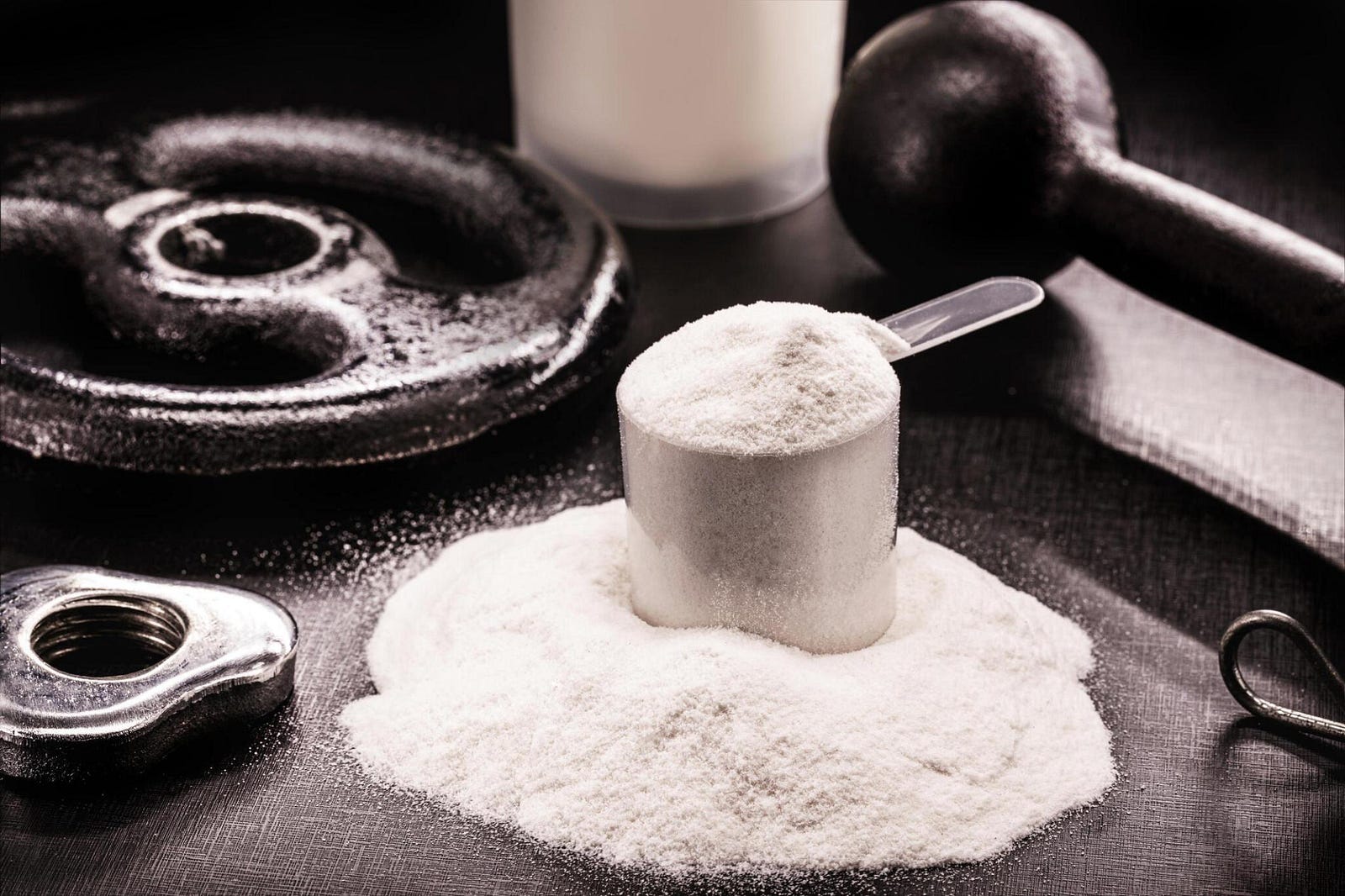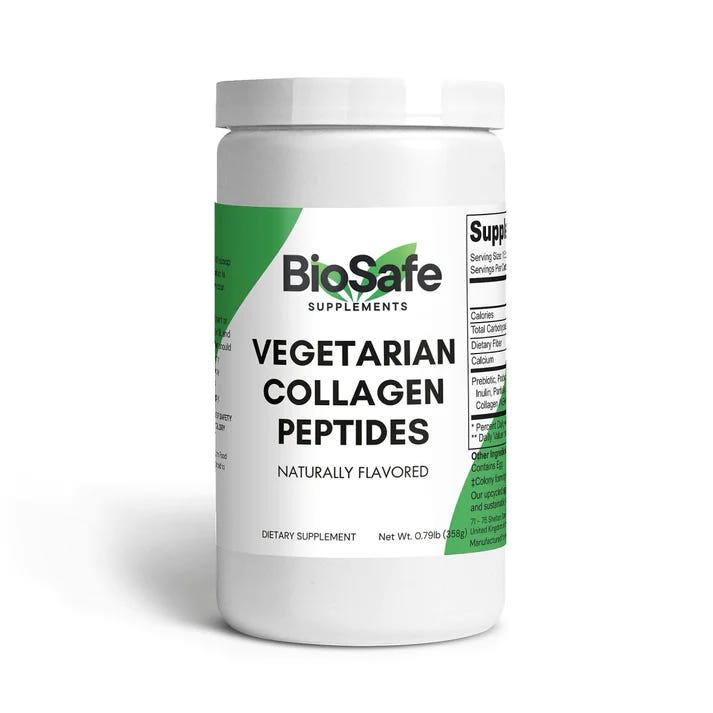Collagen Peptides: Everything You Need To Know
The Potency of Collagen Peptides

Collagen peptides have garnered substantial attention in the realm of health and well-being for their potential to bolster skin health, fortify joint function, and even contribute to weight management. In this all-encompassing manual, we will delve into the scientific intricacies, advantages, applications, and considerations encompassing collagen peptides, empowering you to make judicious decisions about integrating this potent supplement into your daily regimen.
Commencement to Collagen Peptides
A Succinct Overview of Collagen
Collagen, constituting about 30% of the total protein content in the human body, stands as the most abundant protein. It serves as a pivotal component of connective tissues, such as skin, bones, tendons, and ligaments, playing a vital role in upholding their robustness and elasticity. Collagen is also present in other bodily components, including blood vessels, corneas, and teeth.
Comprehending Collagen Peptides
Collagen peptides, also referred to as hydrolyzed collagen or collagen hydrolysate, are diminutive chains of amino acids derived from the breakdown of collagen. These peptides are readily absorbed by the body and have exhibited numerous health benefits, such as those offered by the vegetarian collagen peptides from BioSafe Supplements.
Significance of Collagen Peptides in Health and Well-being
Collagen peptides have been utilized for centuries in traditional medicine to enhance skin health, ameliorate joint function, and bolster overall wellness. In recent years, scientific research has also shed light on the potential of collagen peptides in various facets of health and well-being.
The Scientific Basis of Collagen Peptides
Configuration and Function of Collagen
Collagen, a complex protein comprising three chains of amino acids, forms a triple helix structure. This distinctive structure imparts strength and stability to collagen, rendering it an indispensable component of connective tissues.
Bioavailability of Collagen Peptides
Collagen peptides exhibit high bioavailability, signifying their facile absorption and utilization by the body. This attribute stems from their petite size and structure, enabling efficient breakdown and absorption.
Absorption Mechanism of Collagen Peptides in the Body
Upon ingestion, collagen peptides undergo breakdown into smaller peptides and amino acids, which are subsequently absorbed into the bloodstream and disseminated throughout the body. These peptides then stimulate the generation of new collagen, fostering tissue repair and regeneration.
Health Advantages of Collagen Peptides
Augmenting Skin Health and Appearance
Collagen serves as a pivotal constituent of the skin, responsible for its robustness, elasticity, and hydration. With advancing age, the body’s natural collagen production dwindles, culminating in wrinkles, drooping skin, and dryness. Supplementation with collagen peptides, such as BioSafe’s vegetarian collagen peptides, has demonstrated efficacy in enhancing skin elasticity, hydration, and overall appearance.
Sustaining Joint Health and Mobility
Collagen also constitutes a crucial element of cartilage, the tissue that cushions the joints and facilitates seamless movement. Studies have indicated that collagen peptides can mitigate joint pain and stiffness, enhance mobility, and even decelerate the progression of osteoarthritis.
Fostering Hair and Nail Growth
Collagen stands as an indispensable building block for hair and nails, and the supplementation of collagen peptides has been shown to stimulate hair growth and fortify nails.
Gastrointestinal Health and Digestive Benefits
Collagen peptides have exhibited a favorable impact on gastrointestinal health by fostering the proliferation of beneficial bacteria and diminishing inflammation in the digestive tract. This, in turn, can engender improved digestion, reduced bloating, and enhanced overall gut health.
Integration of Collagen Peptides into Your Daily Regimen
Selecting the Appropriate Collagen Peptides Supplement
When opting for a collagen peptides supplement, it is imperative to seek out a high-caliber product from a reputable brand, like BioSafe Supplements. Look for supplements derived from vegetarian sources and devoid of additives and fillers.
Recommended Dosage and Utilization
The recommended daily dosage of collagen peptides varies based on individual requirements and the specific product. Adhering to the instructions on the supplement label or seeking personalized recommendations from a healthcare professional is advisable.
Diverse Forms of Collagen Peptides (Powder, Capsules, Liquid)
Collagen peptides are available in diverse forms, encompassing powder, capsules, and liquid. Each variant offers its own merits, and the choice among them is contingent on personal preference. Collagen powder is versatile and can be effortlessly incorporated into smoothies, coffee, or other beverages, while capsules and liquid forms offer convenience for individuals on-the-go.
Collagen Peptides and Exercise Performance
Impact on Muscle Recovery and Regeneration
Collagen constitutes a pivotal component of muscle tissue, and supplementation with collagen peptides has been demonstrated to facilitate muscle recovery and repair subsequent to exercise. This can culminate in enhanced performance and reduced susceptibility to injury.
Sustaining Tendon and Ligament Health
Collagen is also present in tendons and ligaments, which are imperative for joint stability and mobility. Research indicates that collagen peptides can enhance the strength and flexibility of tendons and ligaments, thereby diminishing the risk of injury.
Potential Role in Enhancing Athletic Performance
Certain studies have posited that collagen peptides may exert a positive influence on athletic performance, particularly in activities necessitating high levels of joint mobility and flexibility.
Collagen Peptides and Aging
Addressing Age-Related Collagen Depletion
As individuals age, the body’s natural collagen production wanes, precipitating visible signs of aging such as wrinkles, drooping skin, and joint rigidity. Supplementation with collagen peptides can aid in replenishing the body’s collagen levels and impeding the aging process.
Potential Anti-Aging Effects
In addition to enhancing skin elasticity and diminishing wrinkles, collagen peptides have also demonstrated anti-aging effects on other bodily components, including bones and muscles.
Sustaining Bone Density and Robustness
Collagen stands as a pivotal constituent of bones, and supplementation with collagen peptides has been shown to enhance bone density and strength, thereby reducing the risk of osteoporosis and fractures.
Collagen Peptides and Weight Management
Role in Bolstering Metabolism
Collagen peptides have exhibited a favorable impact on metabolism by fostering the development of lean muscle mass and augmenting the body’s capacity to burn fat.
Influence on Appetite and Satiety
Certain studies have suggested that collagen peptides may mitigate appetite and heighten feelings of satiety, leading to reduced calorie intake and potential weight loss.
Potential for Weight Loss Support
While further research is warranted, certain studies have indicated that supplementation with collagen peptides may facilitate weight loss, particularly when coupled with a wholesome diet and regular exercise.
Collagen Peptides and Wound Healing
Expedited Wound Healing Processes
Collagen constitutes a pivotal component of the skin’s healing process, and supplementation with collagen peptides has been shown to expedite wound healing and diminish the risk of infection.
Mitigating Scarring and Fostering Skin Regeneration
Collagen peptides have also demonstrated a favorable impact on scar formation, promoting skin regeneration and diminishing the visibility of scars.
Collagen Peptides and Chronic Conditions
Potential Benefits for Arthritis and Osteoporosis
Studies have indicated that collagen peptides may confer benefits for chronic conditions such as arthritis and osteoporosis, ameliorating pain and enhancing joint function.
Influence on Skin Conditions such as Eczema and Psoriasis
Collagen peptides have also exhibited potential benefits for skin conditions like eczema and psoriasis, mitigating inflammation and fostering skin healing.
Safety and Adverse Effects of Collagen Peptides
Understanding Potential Hazards and Allergies
While collagen peptides are generally deemed safe, certain individuals may experience side effects such as digestive discomfort or allergic reactions. It is imperative to seek counsel from a healthcare professional before commencing any new supplementation.
Interactions with Medications
Collagen peptides may interact with specific medications, underscoring the importance of consulting with a healthcare professional prior to initiating supplementation.
Guidelines for Safe Utilization
It is generally advisable to adhere to the dosage instructions on the supplement label and commence with a lower dosage, gradually escalating as necessary. Opting for a high-quality product from a reputable brand is also crucial.
The Role of Collagen Peptides in Beauty and Cosmetics
Collagen Peptides in Skincare Products
Collagen peptides are a prevalent ingredient in skincare products, including creams, serums, and masks, owing to their potential to enhance skin elasticity and diminish wrinkles.
Hair and Nail Supplements Containing Collagen Peptides
Collagen peptides are also commonly integrated into hair and nail supplements, as they have demonstrated efficacy in promoting hair growth and fortifying nails.
Efficacy and Considerations in Beauty Applications
While further research is warranted, certain studies have indicated that collagen peptides may exert a positive influence on skin health and appearance when employed in beauty applications.
The Future of Collagen Peptides Research
Ongoing Studies and Clinical Trials
Research on the potential benefits and applications of collagen peptides is ongoing, with new studies and clinical trials being conducted to further explore their potential.
Potential Applications in Medicine and Healthcare
Certain studies have suggested that collagen peptides may hold potential applications in medicine and healthcare, encompassing wound healing and tissue regeneration.
Understanding Different Types of Collagen Peptides
Type I, II, and III Collagen Peptides
Distinct types of collagen peptides exist, each conferring unique benefits. Type I is the most prevalent in the body and is present in skin, bones, and tendons. Type II is found in cartilage, while type III is present in skin, muscles, and blood vessels.
Final Thoughts
Collagen peptides present a multitude of potential health benefits, ranging from skin rejuvenation and joint health to weight management and wound healing. Their role in the beauty and cosmetics industry is also noteworthy, with applications in skincare products and hair and nail supplements. Additionally, ongoing research and clinical trials continue to explore their potential applications in medicine and healthcare.
It’s important to choose a high-quality collagen supplement to maximize these benefits. BioSafe Supplements’ Vegetarian Collagen Peptides is a great choice for those seeking a plant-based option. Sources:
Sources:
- Healthline: Collagen Peptides: Benefits, Safety, and Efficacy
- WebMD: The Science of Collagen Supplements
- Medical News Today: What to know about collagen supplements
- Mayo Clinic: Do collagen supplements really help skin, hair, and nails?
































































